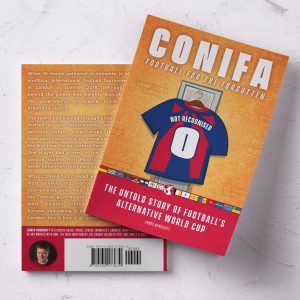
Why start a brand focused on ethical publishing? The answer is simple: experience of the industry. Now, don’t get me wrong, I’m not alleging that the publishing industry is all bad. Not by a long shot. There is no question that the industry has made many writers famous and enabled them to live joyous and successful lives that would otherwise be beyond their wildest dreams. It’s allowed them to get their ideas out into the public realm, and to spend their lives learning, and researching, and putting pen to paper. And I have the utmost respect for those people.
What I’m less sure of, is that the industry works out well for those writing knowingly niche books. What if you only expect to sell no more than a couple of thousand copies, realisitically? The industry stops working pretty quickly then: the advances are poor, the effort required to get a contract high, and the financial reward likely to be very, very minimal next to the effort.
I went through this. in the end, I didn’t sign a contract. I learnt how to self publish and promote instead, and came out of the experience with a life skill and the right to all my profits in perpetuity (which might be useful if, somehow, my book went on to be big, and if it doesn’t, well at least I get to keep all the rewards of my efforts).
That wasn’t the plan, as it happens. I had a publisher ready to go, and they pulled out after months of engagement, because the regional office concerned had not consulted the head office, who decided the book wouldn’t sell in large enough quantities. They were probably right, but they’d taken my best possible publishing dates from me in the process, so to say it was frustrating that they took so long to come to that conclusion is something of an understatement.
The experience of going it alone, making a modest amount of money (and above the nominal amount per copy you get when engaged with a publisher), and learning that not only could I do it, but it was in my interests, is what prompted The Stand.
So here we are. And naturally, I’m going to tell you about the book. It came out in 2019, and it’s entitled ‘CONIFA: Football For The Forgotten’. It explored the story behind a football tournament in London run for ‘unrecognised nations’ (in footballing and politcal terms, depending on the individual team), from Tibet to Northern Cyprus, Abkhazia to Tuvalu. More importantly, perhaps, it’s about the backstory to those teams.
It’s still on sale, and ticking along nicely more than three years after release, and I don’t have to consult with publisher over printing more, or what happens to my royalties, or whether it’s still relevant to today’s audience. The full details, should you want a copy, are below – it’s rated 4.8 on Amazon and 4.6 on Goodreads at the time of writing, so if you’re interested in the subject, I’m confident you’ll enjoy it. For the rest of you, this is just a short origin story, and perhaps, the little bit of context that will make this all make sense.
CONIFA: Football For The Forgotten
The CONIFA World Football Cup took place in London in the summer of 2018. Dubbed the world cup for ‘unrecognised nations’, it saw soccer teams from difficult roots compete for a parallel world cup in a 16 team tournament over nine days. The competitors varied from established countries (Tuvalu) to disputed regions (Northern Cyprus, Tibet, and Abkhazia), minority groups (Punjab, Kabylia and Matabeleland), and regions with distinctive individual identities (Cascadia, Ellan Vannin).
‘CONIFA: Football for the Forgotten’ explores the organisation and the hardships of these teams through the lens of the tournament. The organisation’s roots lie with a Sapmi minority President from Northern Sweden – a businessman and reindeer herder called Per-Anders Blind – and an obscure shirt collector from central Germany, Sascha Duerkop.
The 2018 tournament was their fifth, and biggest tournament to date. CONIFA’s sides came through intense difficulties in preparing for the London tournament. Kabylia could bring only expat players, and saw their coach arrested and questioned by Algerian authorities. Matabeleland trained with a single functioning ball and no nets in Bulawayo, Zimbabwe, before an English trainer from Latvia and Bruce Grobbelaar combined to get them to London.
Cascadia, representing a region on the west coast of the US and Canada, formed on internet forums, and hauled a team together just in time for the tournament, meeting for the first time the day before kick off. Northern Cyprus – the largest region of Europe that’s totally ineligible for UEFA club competition – brought a team of their best league players, treating the tournament as their own world cup.
The tournament itself also came under threat: almost all the sponsors threatened to withdraw at late notice, after CONIFA refused to throw out Tibet. They suspect Chinese influence. The Sri Lankan and Cypriot governments objected in writing in advance of the games, and when it was all over, the Ukraine banned an entire team’s players from competing in their country again.
‘CONIFA: Football for the Forgotten’ is the story of all the battles to play, all the action from the tournament itself, and more.
The book is based on around 50 interviews with those involved in the tournament, and running the teams, as well as attendance at 16 games of live football in just 6 playing days. It reveals previously unpublished information about the inner workings of CONIFA (including its finances and response to allegations the organisation works on behalf of Russia).
It’s a book about football, but also a book about diverse political architecture in different parts of the world, and the struggles that their desire to simply play the game for a shirt they love have created.
—15 x 21 cm
Paperback
215 pages
April 2019
English
9780244173630
